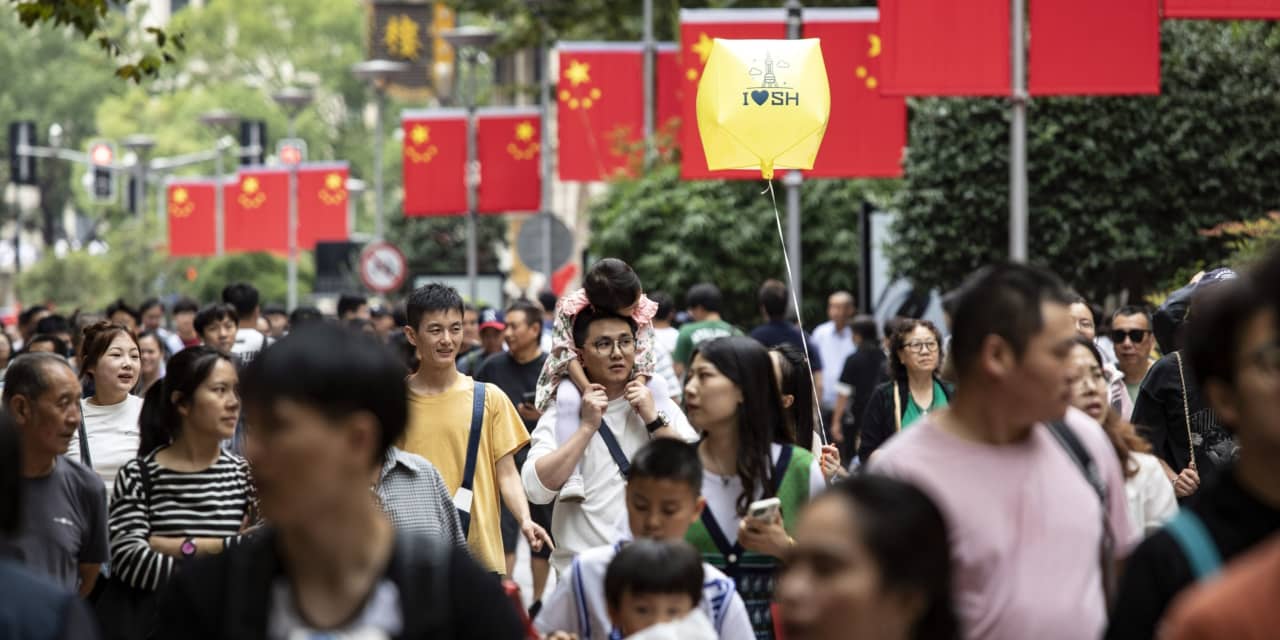“The benefits are better, and the government will help if there is trouble,” said Wang Jun, a 34-year-old manager at a Beijing-based bank branch, referring to his preference for working at a state-owned versus private firm.
A number of factors have resulted in the resurrection of state companies in China, at the expense of private firms. And that may actually come as good news for many young Chinese, who—according to recent data—overwhelmingly prefer joining the public sector.
The state resurgence is recent, inextricable from changes brought by Covid and China’s new era of slowing growth. Those disruptions increased worker insecurity, experts say, making the once-staid public sector regain its attractiveness.
Forty years ago, state-owned firms represented nearly all of China’s corporate sector. As liberalization policies were rolled out year after year, private firms sprouted up in number, in size, and in their share of the overall economy.
The year before Covid struck, nonstate enterprises had grown to account for 95% of all industrial firms and employed 85% of urban workers, according to China’s National Bureau of Statistics. The private sector had triumphed.
Then things changed. By the end of 2020, as the effects of Covid restrictions hit hard, the private-public proportions of the economy shifted again—but much more rapidly. The private share fell as the state share rose.
Observers waited to see if this was a Covid-only phenomenon. But recent data show the private share has continued to fall, well into this year, long after China ended pandemic restrictions.
As of mid-year—the latest data available—state-owned enterprises represented 40% of China’s corporate sector by market capitalization. Among the country’s 100 largest listed companies, state-owned firms accounted for 61%—a record high in modern times.
“The continuous decline of the private-sector share among China’s largest companies over four semesters in a row through mid-2023 does not support optimism about the future dynamism of China’s economy,” wrote Tianlei Huang and Nicolas Veron of the Peterson Institute for International Economics.
China’s annual civil service exam is illustrative of the lurch back toward the state. The number of applicants stagnated in the years before the pandemic. But upticks were seen each year during the pandemic, and for this year’s test, held Nov. 26, total applicants hit 2.6 million, a record and double the 2019 number.
“When it comes to perceptions of economic health, people vote with their feet,” said Taisu Zhang, a professor at Yale University and expert on Chinese law, of the applicant increase. “Covid really was a fundamental shock to private economic confidence.”
Recent college graduate Jack Liu took the exam. “It’s extremely competitive but if you score high and get a government job, you’re set for life,” he said. Liu added that he and his family had discussed the rising importance of job security after Covid and amid China’s slowing economy.
One catch, however, is that the preference for public-sector positions tracking alongside growth in the sector itself means that competition remains fierce despite the shifts.
Roughly 64% of students in the government-run Chinese College Student survey expressed a strong preference for state-sector employment, according to a recent analysis by a group of scholars at Stanford University and in China.
The changes come at a time of record-high youth unemployment and questions about the veracity of the official jobless rate. Even worse for China’s youth, many new job seekers may not understand that state-sector growth is largely in industries they traditionally lack interest in. Government subsidies have overwhelmingly focused on boosting bloated areas like infrastructure and real estate.
“Unfortunately, the increasingly state-dominated property and construction sectors are not only notoriously unproductive but virtually irrelevant to the prospects of the young and the educated,” Benn Steil and Elisabeth Harding of the Council on Foreign Relations wrote in a recent report.
“Young Chinese look overwhelmingly to the service sector, which employs half the national workforce, for jobs. And so new stimulus-driven opportunities in fields such as carpentry and bricklaying hold no interest for graduates in areas such as literature and computer science,” they said.
But times are so dire that many young graduates don’t seem to be picky about their job placement, particularly if it is in the public sector.
When asked if he was comfortable going into an area not aligned with his educational background in hospitality services, civil service exam-taker Liu said, “I’ll take what I can get.”
Read the full article here


